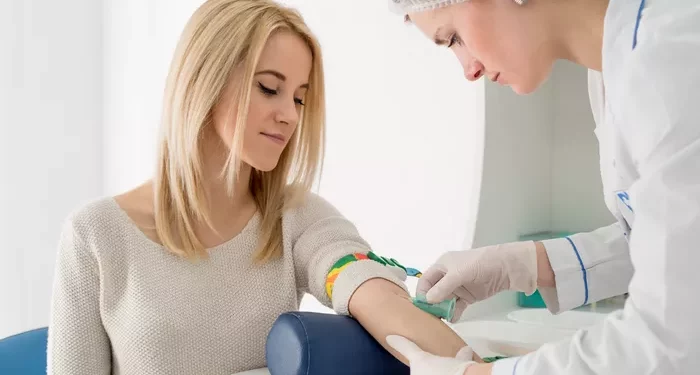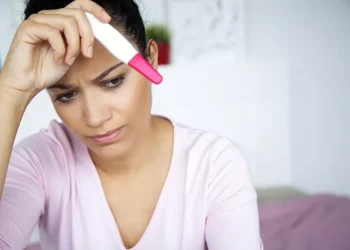Becoming pregnant at any age brings a series of emotional, physical, and social changes. However, the challenges are even more significant for teenagers, particularly those around 15 years old. This article will explore the various aspects that make it difficult for 15-year-olds to get pregnant, covering biological, social, and psychological factors.
Biological Challenges
Physical Maturity and Fertility
At 15, many teenagers are still going through puberty. Puberty is a period of significant physical changes, including the development of the reproductive system. Although girls may start menstruating as early as 9 or 10 years old, regular ovulation cycles often take several years to establish. Without regular ovulation, getting pregnant becomes more difficult.
Nutritional Needs
Teenagers require a higher intake of nutrients to support their growth and development. At 15, a girl’s body is still growing, meaning she needs ample nutrients for her development. If a 15-year-old becomes pregnant, her body must share these nutrients with the developing fetus, which can lead to nutritional deficiencies that affect both the mother and the baby. Poor nutrition can lead to issues with fertility and pregnancy maintenance.
Health Risks
Younger teenagers are at a higher risk for various health complications during pregnancy. Their bodies are not fully mature, which increases the chances of complications such as:
- Preterm birth
- Low birth weight
- Preeclampsia
- Gestational diabetes
These health risks not only complicate the pregnancy but also affect the teenager’s ability to carry a pregnancy to term.
Psychological Challenges
Emotional Readiness
Emotional readiness is a crucial factor in the decision to become a parent. At 15, most teenagers are not emotionally prepared for the responsibilities of pregnancy and parenthood. They are still developing their identities and understanding their place in the world. The stress and anxiety associated with an unplanned pregnancy can lead to significant emotional distress.
Mental Health Issues
Teenagers are particularly vulnerable to mental health issues. The pressure of an unexpected pregnancy can exacerbate conditions such as depression and anxiety. Without proper mental health support, these issues can negatively impact a teenager’s ability to cope with pregnancy.
Social Challenges
Lack of Support
Social support is essential for pregnant teenagers. However, many 15-year-olds lack the necessary support systems. Their peers may not understand their situation, and they may face judgment or isolation from friends and family. This lack of support can lead to feelings of loneliness and helplessness.
Educational Interruption
Pregnancy can significantly disrupt a teenager’s education. At 15, girls are typically in high school, focusing on their studies and future careers. Pregnancy can interrupt this educational trajectory, making it harder for them to complete their schooling and achieve their long-term goals. This disruption can have lasting impacts on their economic and social status.
Economic Challenges
Teenagers often do not have stable financial resources. A 15-year-old is likely still dependent on their parents or guardians for financial support. Raising a child is expensive, and without a stable income, young mothers may struggle to provide for their child’s needs. This financial strain can lead to reliance on social services and government assistance, creating additional stress.
Sexual Health Education
Lack of Comprehensive Education
Many teenagers receive inadequate sexual health education. Without comprehensive knowledge about contraception and reproductive health, they are more likely to engage in risky sexual behaviors. Proper education is crucial in preventing unintended pregnancies and ensuring that teenagers understand the consequences of their actions.
Access to Contraception
Even with adequate education, access to contraception can be limited for teenagers. Some may feel embarrassed or afraid to seek contraception, while others may face barriers such as cost or availability. Without easy access to contraceptive methods, the risk of unintended pregnancy increases.
See Also: Does Fertility Decline After Age 35?
Legal and Ethical Considerations
Age of Consent
Laws regarding the age of consent vary by location. In many places, a 15-year-old is considered below the age of legal consent for sexual activity. This legal status can complicate matters if a pregnancy occurs, as it may involve legal consequences for the older partner. Understanding the legal implications is crucial for teenagers and their families.
Parental Consent for Medical Care
Teenagers often need parental consent to access medical care, including reproductive health services. This requirement can be a barrier for those who do not have supportive parents or guardians. It can prevent them from receiving timely and appropriate medical care, increasing the risks associated with pregnancy.
Health Care Access
Prenatal Care
Access to prenatal care is vital for a healthy pregnancy. However, 15-year-olds may face challenges in accessing this care. They may not know where to go for services or may be unable to afford the necessary appointments. Without proper prenatal care, the risk of complications increases.
Postnatal Care
Postnatal care is equally important for the health of both the mother and the baby. Teenagers may struggle to access postnatal care due to similar barriers as prenatal care. Proper support during the postpartum period is essential for recovery and the well-being of both the mother and child.
Societal Stigma
Judgment and Discrimination
Teenage mothers often face societal stigma and discrimination. This judgment can come from peers, educators, healthcare providers, and the community. Stigma can lead to feelings of shame and isolation, making it harder for young mothers to seek the support and care they need.
Long-term Impact
The stigma associated with teenage pregnancy can have long-term impacts. It can affect a young mother’s self-esteem, mental health, and opportunities for education and employment. Overcoming this stigma requires societal changes and a more supportive environment for young mothers.
Case Studies and Statistics
Teenage Pregnancy Rates
Understanding the prevalence of teenage pregnancy can provide context. According to the Centers for Disease Control and Prevention (CDC), teenage pregnancy rates have declined in recent years, but challenges remain. In 2019, the birth rate for teenagers aged 15-19 was 16.7 per 1,000 females. While this is a significant decrease from previous decades, it highlights that teenage pregnancy is still an issue that needs addressing.
Success Stories
Despite the challenges, some teenage mothers overcome the odds and succeed. Sharing these success stories can provide hope and inspiration for young mothers facing similar situations. These stories often highlight the importance of support systems, education, and access to healthcare.
Conclusion
In conclusion, getting pregnant at 15 presents a multitude of challenges. Biological, psychological, and social factors all contribute to the difficulties faced by teenage mothers. Addressing these challenges requires comprehensive sexual health education, access to contraception and healthcare, and supportive environments free from stigma. By understanding and addressing these issues, society can better support young mothers and help them navigate the complexities of teenage pregnancy.
Related Links:



























